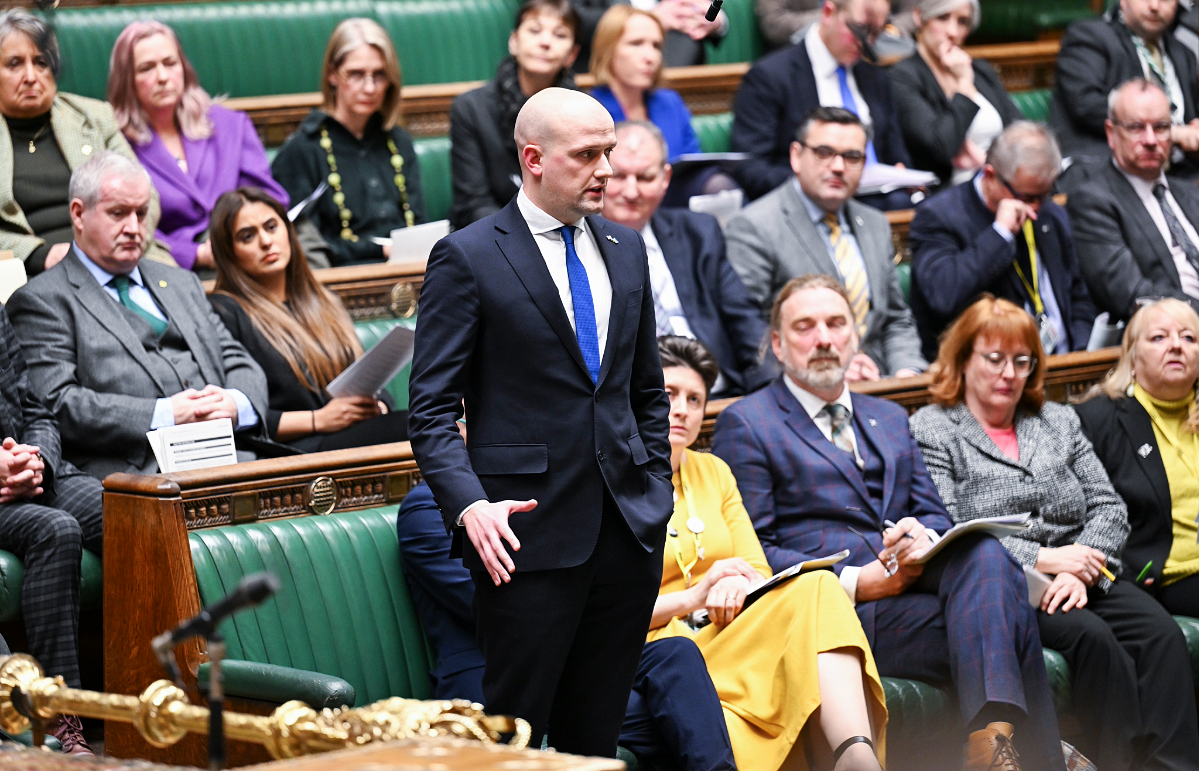On Wednesday evening, MPs will vote on a motion calling for an immediate ceasefire in Gaza.
It’s important to acknowledge from the start, what this is and isn’t about.
It isn’t about changing the awful conditions on the ground in Gaza, or putting pressure on the Israeli government to stop its military operations there.
That’s because Conservatives have a majority in the House of Commons, and the UK Government doesn’t support a ceasefire – instead, it backs a “humanitarian pause” in the fighting, similar to what happened over seven days in November, allowing more aid to reach Palestinian civilians.

The UK Government backs what it says is Israel’s right to defend itself in response to Hamas aggression. Like all parties at Westminster, it also calls for the immediate and unconditional release of remaining Israeli hostages held in Gaza.
So, for a second time since the Hamas attack on October 7 last year, and the Israeli military response, Westminster is expected to reject the call for an immediate ceasefire.
But it’s clear that even if MPs did vote for a motion calling for hostilities to stop, it’s doubtful that it would make any difference.
Like most of Israel’s allies, the UK Government has been calling for restraint, and more action to protect Palestinian civilians, since early in the military operation in Gaza.
 UK Parliament
UK ParliamentSo has the United States, which has by far the loudest voice when it comes to trying to influence Israel’s government.
The USA provides billions of dollars worth of military aid to Israel every year – but even the appeals of President Joe Biden, who called Israel’s response “over the top” earlier this month, haven’t prevented huge civilian loss of life in Gaza.
That American military aid has continued to flow – indeed, the only action to back up the words from the US and the UK has been to sanction a small number of Jewish Israeli settlers, whose religious ideology has fuelled deadly attacks on Palestinians in the West Bank.
That isn’t to say that the UK has no influence on the conflict in the Middle East.

It has a significant role to play, particularly via intermediaries in the region like Oman and Qatar, who have helped bring Hamas to the negotiating table.
The UK also has lines of communication that allow it to speak – directly but privately – with the government of Iran, a country the USA doesn’t have formal diplomatic relations with.
Iran is the main international backer of Hamas, as well as Hezbollah in Lebanon, the Houthis in Yemen, and armed groups across the Middle East that threaten global stability.
But, if Wednesday’s vote isn’t about changing the reality on the ground – what is it about?
It is, of course, in the eyes of those who believe Israel’s military action in Gaza should stop immediately, about making a stand and doing the right thing.

But it is also about politics – domestic British politics. Even the SNP, which is putting forward this week’s ceasefire motion, admits as much.
When MPs last voted on a Gaza ceasefire, it caused huge problems for Labour. At the time, Keir Starmer was in favour of a “humanitarian pause”, but 56 of his MPs rebelled and a handful of shadow ministers resigned to join the SNP in voting for a ceasefire.
The party has also suffered the resignation of dozens of councillors across England, losing control of whole councils as a result. And while Muslim voters clearly don’t all feel the same way, there are fears among Labour MPs and candidates that a significant minority could refuse to vote for the party at a general election later this year.
The place where that might have the greatest impact is in Glasgow, where Scotland’s Muslim population is highest, and where the SNP will be fighting to hold on to its MPs.
Nearly 20,000 more Palestinians have died in Gaza since the last Westminster vote; we now know that more than half of all buildings in Gaza City, which had a population of one million, have been damaged or destroyed.
Rafah, which is sheltering more than a million Palestinians forced out of their homes elsewhere in Gaza, is now threatened with direct Israeli assault.

Labour’s position has moved on, too. At its conference last week, Scottish Labour backed a motion in favour of an immediate ceasefire, supported by leader Anas Sarwar. And in his speech to the conference in Glasgow, Keir Starmer said a “ceasefire that lasts” must “happen now”.
The expectation is that Labour will find a form of words that satisfies the greatest number of its MPs possible – including the two Scottish Labour MPs, Ian Murray and Michael Shanks, who are now bound by what was agreed at their conference.
The question is, whether a solution to Labour’s domestic political problem is enough to win back the support of those who believe Keir Starmer should have called for a ceasefire much sooner.
For now though, any solution to the suffering in Gaza, tragically, remains beyond hope.
Follow STV News on WhatsApp
Scan the QR code on your mobile device for all the latest news from around the country




























